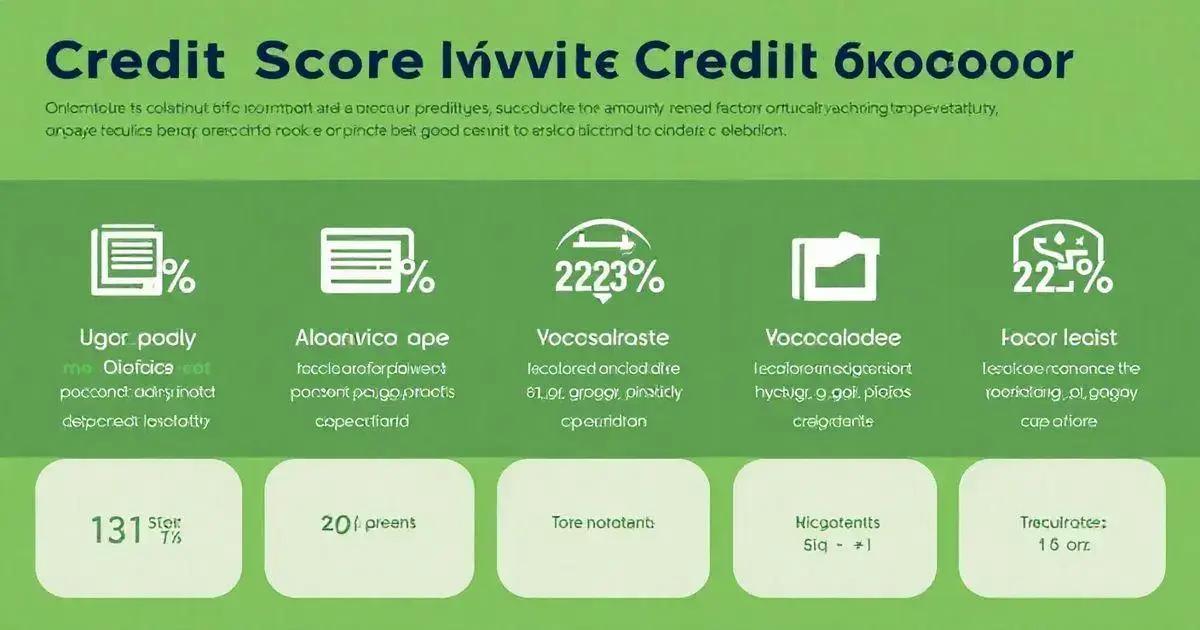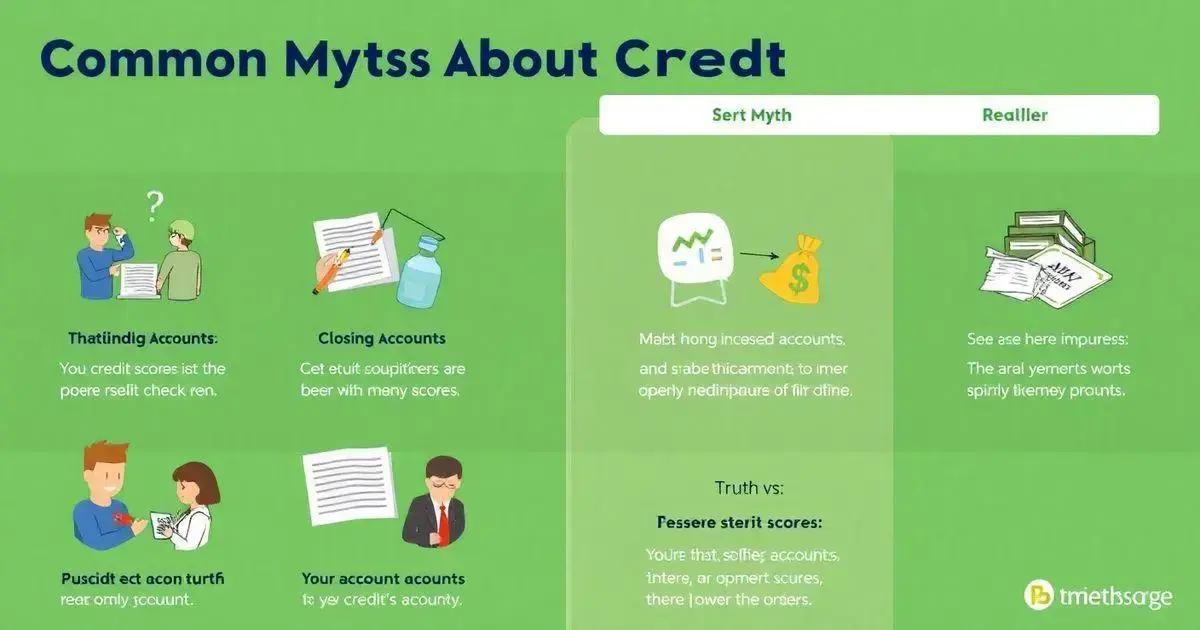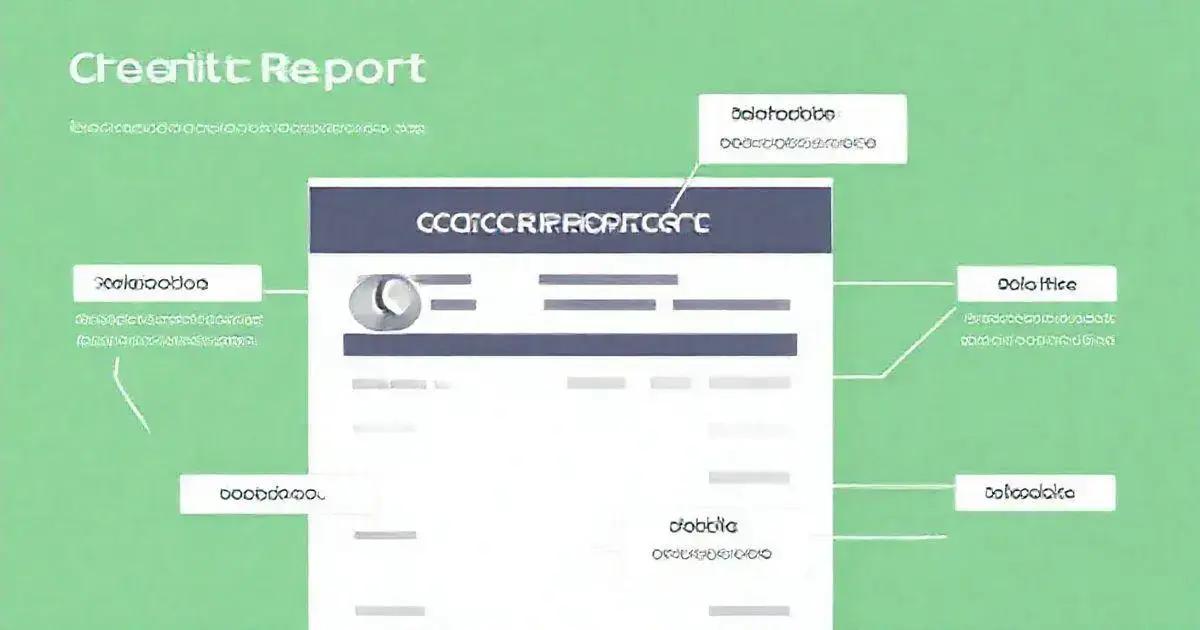Are you wondering how credit scores affect loan approval? Your credit score plays a vital role in determining whether you qualify for a loan.
A higher score can lead to better rates and terms, while a lower score might result in denials or higher interest rates.
In this article, we will delve into the intricacies of credit scores and their direct link to loan approvals, helping you navigate this essential aspect of personal finance.
Understanding Credit Scores
Credit scores are numerical representations of your creditworthiness. They range from 300 to 850, and the higher your score, the better. A strong credit score can be crucial when applying for loans and mortgages.
Understanding credit scores helps you see why they are important. Additionally, knowing how credit scores affect loan approval is key to navigating the lending process effectively.
What Makes Up a Credit Score?
A credit score is influenced by many factors:
- Payment History: This is the most significant factor, making up about 35% of your score. It reflects your bill payment timeline.
- Credit Utilization: This represents how much of your available credit you’re using. A lower percentage is better—ideally below 30%.
- Length of Credit History: Older accounts help boost your score. This shows you have more experience with managing credit.
- Types of Credit: Having a variety of credit accounts, like credit cards, auto loans, and mortgages, can positively affect your score.
- New Credit: This includes new accounts and inquiries. Too many inquiries can decrease your score.
Why Are Credit Scores Important?
Credit scores significantly affect your ability to secure loans and the terms you receive. A higher score usually leads to better interest rates, while a low score can result in higher payments or denial of credit.
This underscores how credit scores affect loan approval and highlights the importance of maintaining a good score to access favorable financial opportunities.
Maintaining a Good Credit Score
To keep your credit score healthy, consistently pay your bills on time, use credit responsibly, and monitor your credit report for errors. Regular checking can help catch mistakes that might negatively impact your score.
How Credit Scores are Calculated

Ever wondered how credit scores are calculated? Understanding the calculation process can help you manage your credit effectively.
Credit scores rely on several key factors, each contributing differently to your overall score. Additionally, recognizing how credit scores affect loan approval can empower you to make better financial decisions.
1. Payment History
Your payment history makes up around 35% of your credit score. This means that consistently paying your bills on time is crucial. Late payments, defaults, or bankruptcies can severely damage your score.
2. Amounts Owed
This factor accounts for about 30% of your credit score. It focuses on how much you owe compared to your credit limits, known as credit utilization. Ideally, using less than 30% of your available credit is best.
3. Length of Credit History
A longer credit history can improve your score. This part represents about 15% of your score. Lenders like to see that you have experience managing credit over time. Keeping older accounts open helps build this history.
4. Types of Credit in Use
This factor makes up around 10% of your score. Having a mix of different types of credit—like credit cards, mortgages, and installment loans—can be beneficial. It shows lenders that you can handle various kinds of credit responsibly.
5. New Credit
The final factor covers about 10% of your score. This includes how many new accounts you have and recent inquiries into your credit. Opening too many new accounts in a short time can lower your score.
Being aware of these factors can help you maintain a good credit score. Regularly checking and understanding your credit report can help you improve your score over time. Moreover, understanding how credit scores affect loan approval allows you to take control of your financial future and achieve better lending outcomes.
Impact of Credit Scores on Loan Types
The impact of credit scores on loan types is significant and varies across different loan products. Lenders use your credit score to determine not only your eligibility but also the interest rates and terms they offer.
This illustrates how credit scores affect loan approval and highlights the importance of maintaining a strong credit profile.
1. Mortgages
When applying for a mortgage, your credit score is crucial. A score above 620 is generally needed to qualify for most mortgage types. Higher scores can lead to lower interest rates, which could save you thousands over the life of your loan.
2. Auto Loans
Similar to mortgages, credit scores impact auto loans. A good credit score (typically above 700) may qualify you for favorable financing options and lower interest rates. However, if your score is below 600, you may face higher rates or difficulty getting approved.
3. Personal Loans
Personal loans can be easier to obtain, even for those with lower credit scores. However, the interest rates for individuals with scores below 650 may be substantially higher. Lenders perceive higher-risk individuals as more likely to default.
4. Credit Cards
Your credit score heavily influences the type of credit cards available to you. Cards with rewards and lower interest rates typically require good to excellent credit. Conversely, those with poor credit may only qualify for secured cards, which require an upfront deposit.
5. Student Loans
Federal student loans do not require a credit check, making them accessible to all students. For private student loans, however, a good credit score boosts your chances of approval and better terms. Lower scores may necessitate a co-signer, impacting loan options.
Understanding how credit scores affect loan approval across different loan types helps you make informed decisions. It’s essential to maintain a healthy credit score to secure the best loan scenarios.
Common Myths About Credit Scores

Many people hold misconceptions about credit scores. Learning the truths can help you manage your credit more effectively. Additionally, understanding how credit scores affect loan approval allows you to navigate the borrowing process with greater confidence. Here are some common myths about credit scores:
1. Checking Your Own Credit Hurt Your Score
This is not true. When you check your own credit score, it is known as a “soft inquiry”. Soft inquiries do not impact your credit score at all. However, when a lender checks your score, it is a “hard inquiry” and may affect your score slightly.
2. Closing Old Credit Accounts Improves Your Score
Closing old accounts can actually harm your score. These accounts contribute to your credit history length, which is an important factor in your score. Instead of closing accounts, keep them open and inactive.
3. You Only Have One Credit Score
In reality, you have multiple credit scores. Different lenders may use different scoring models. This means that your scores can vary depending on who is looking at them.
4. Paying Off Debt Will Remove Negative Information
While paying off debt is essential, it does not remove negative information from your credit report immediately. Negative items, like late payments or bankruptcies, can stay on your report for up to seven to ten years.
5. A Good Credit Score Guarantees Loan Approval
A good score increases your chances of approval, but it does not guarantee it. Lenders consider various factors beyond just your credit score, like income, debt-to-income ratio, and job stability. This highlights another important aspect of how credit scores affect loan approval, reminding you that a strong credit profile is only part of the equation.
Understanding these common myths about credit scores can help you make better financial decisions and improve your credit management strategies.
Improving Your Credit Score Before Applying
Improving your credit score before applying for a loan can make a big difference. Knowing how credit scores affect loan approval can motivate you to take steps that enhance your chances of securing better terms. Here are some effective strategies to boost your score:
1. Check Your Credit Report
Start by reviewing your credit report for errors. You are entitled to one free report each year from each of the three major reporting agencies. Dispute any inaccuracies you find, as they can negatively impact your score.
2. Pay Your Bills on Time
Your payment history is a major factor in your credit score. Make it a habit to pay all bills on or before their due dates. Setting up automatic payments or reminders can help you stay on track.
3. Reduce Credit Card Balances
High credit card balances can decrease your score. Aim to keep your credit utilization ratio below 30%. Paying down existing debt can boost your score significantly.
4. Avoid Opening New Credit Accounts
Before applying for a loan, avoid opening new credit accounts. Each hard inquiry can lower your score temporarily. Focus on maintaining your current accounts while you prepare for your loan application.
5. Keep Old Accounts Open
Your credit history length impacts your score. Keep older credit accounts open and active, even if you don’t use them often. This can help improve the overall length of your credit history.
6. Consider Becoming an Authorized User
Ask a family member or friend if you can become an authorized user on their credit card. If they have a good payment history, it can help improve your score by adding their positive credit behavior to your history.
Understanding how credit scores affect loan approval emphasizes the importance of these strategies. By following these steps, you increase your chances of securing favorable loan terms and interest rates.
What Lenders Look for in Your Credit Report

When applying for a loan, understanding how credit scores affect loan approval is essential to prepare effectively. Lenders carefully examine your credit report to determine your eligibility and loan terms. Here are some critical aspects they evaluate:
1. Payment History
Your payment history is one of the first things lenders check. This section shows whether you’ve paid your bills on time. Late payments can significantly hurt your credibility with lenders.
2. Outstanding Debts
Lenders also review how much debt you currently owe. This includes credit card balances, loans, and any other outstanding liabilities. A high debt amount compared to your income can signal risk.
3. Length of Credit History
Having a longer credit history can work in your favor. Lenders like to see established accounts that demonstrate responsible credit management over time.
4. Types of Credit Accounts
Your credit report lists various types of credit accounts, such as credit cards, mortgages, and installment loans. A mix of credit types can help show lenders you handle different forms of credit well.
5. New Credit Inquiries
Lenders will look at how many recent inquiries are on your credit report. Multiple inquiries in a short time can decrease your score and suggest that you may be seeking too much credit at once.
6. Public Records
Public records, such as bankruptcies or court judgments, are also included in your credit report. These negative items can signal financial distress and affect your chances of securing a loan.
By understanding how credit scores affect loan approval, you can identify areas to improve before applying. Lenders use this detailed information to assess your creditworthiness and the likelihood of repaying the loan, so being prepared is key to securing better loan terms.
FAQ – Frequently Asked Questions about Credit Scores and Loan Approval
What is a credit score?
A credit score is a numerical representation of a person’s creditworthiness, typically ranging from 300 to 850.
How do credit scores affect loan approval?
Credit scores influence a lender’s decision on whether to approve your loan and the interest rates they offer.
What factors are used to calculate credit scores?
Credit scores are calculated based on payment history, amounts owed, length of credit history, types of credit, and new credit inquiries.
Can I check my own credit score without it hurting my score?
Yes, checking your own credit score is considered a soft inquiry and does not impact your credit score.
What do lenders specifically look for in my credit report?
Lenders look for payment history, outstanding debts, length of credit history, types of credit accounts, new credit inquiries, and public records.
How can I improve my credit score before applying for a loan?
You can improve your credit score by checking your credit report for errors, paying bills on time, reducing credit card balances, and keeping old accounts open.

